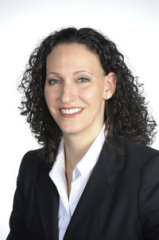 “Industries are always evolving, and adapting to the changes is a key part of your career,” says Nancy Laethem Stern, Executive Vice President, General Counsel and Secretary for Allston Holdings. “You can’t view the world as static; instead you have to be prepared to adapt and anticipate ways in which things are going to change.”
“Industries are always evolving, and adapting to the changes is a key part of your career,” says Nancy Laethem Stern, Executive Vice President, General Counsel and Secretary for Allston Holdings. “You can’t view the world as static; instead you have to be prepared to adapt and anticipate ways in which things are going to change.”
Wise advice from Stern, who has seen many of those changes throughout her career. After graduating from law school at the University of Michigan, she clerked for a federal judge for two years and then joined a large law firm as a litigation associate. She subsequently transferred to the corporate department, where she worked on M&A and securities matters. She was elected partner and named vice chair of the corporate department. After 10 years she moved to another large law firm, where she focused on M&A and corporate governance.
Stern joined Allston in July 2013, where she says she is excited to be in a role where she can have a strategic voice, helping the CEO make business decisions and cope with today’s evolving regulatory environment.
In fact, she cites that as the professional achievement she is most proud of so far: developing her judgment to help guide others in decision making. “I’m always working to refine and strengthen that skill set, but the opportunity I’ve had to tackle a variety of different challenging assignments throughout my career has been instrumental in developing strong judgment.”
As part of that strategic counsel role, she is excited about the opportunity her position offers to delve into the nuances of the business. Currently she’s learning about new tools to analyze risk and help inform business decisions, which she finds fascinating from a more quantitative perspective.
Helping Shape the Law
Echoing her assessment of the industry as one of rapid change, Stern has found that the pace of change has accelerated over her career. In the wake of Michael Lewis’ book Flash Boys about high-speed trading, there has been a lot of debate about market structure and how trading should be regulated. She has found that regulators, legislators and reporters alike are very interested in speaking with industry participants who are knowledgeable.
“It’s been a wonderful opportunity to help shape the law,” she says, adding that she recently had an opportunity to meet with senior staffers at the U.S. Securities and Exchange Commission, along with congressional representatives who wanted to learn more from people who are immersed in the business.
“They want to know what the issues are and how they can impose regulations that will have the intended effect, while avoiding unintended consequences as much as possible. In such a complex industry, it’s challenging to develop the regulatory schemes that accomplish that.”
The Best Kept Secret on the Industry’s Opportunities for Women
Stern says that since many of the jobs in the trading industry require deep knowledge of math and computer science, women tend to be underrepresented, which in turn can make them feel unwelcome in the culture. But she sees immense opportunities for women who have these skills; and in fact, she says that the transition of trading from a physical interaction in a pit to an electronic interaction has contributed to the field becoming more of a meritocracy, which can benefit women.
“It involves anonymous trading on a screen, and that’s an area where women who have the skills can do very well,” she says, as it removes the physical nature of the business. “Unfortunately I don’t know how many women are aware of that. Trading is not a common career aspiration for a lot of women, but I believe that many would be well suited to it if they knew more about it and the skills needed.”
Stern says that the best advice she can give women beginning their careers is to not only become very competent at their jobs, but to couple that with being helpful. “This will encourage others to want you on their team, and mentors will appear. However, it’s vital that you start with the substantive work because people want to invest in people who have potential and have demonstrated aptitude. Start there and dig in and you will reap the benefits.”
Though there aren’t formal programs at her firm to advance women, she says that having a diverse group of people is very much part of the culture. “If you have the combination of a meritocracy that rewards hard and good work, with the core value of diversity as part of the fabric of the firm’s culture, it’s going to have more of an impact than a program. Here, we are driven by the desire to attract and retain the best people, whomever they are.”
Stern also mentors women both formally and informally. She participates as a mentor through WILD (Women in Listed Derivatives) and then supplements that with informal mentoring of women she meets through other paths, such as friends of friends.
For example, she recently met with a student from DePaul University whose mentor, a former law partner colleague, knew of Stern’s background. He connected them because of the student’s interest in M&A law and Stern’s willingness to give advice to others interested in traveling that path.
Stern is willing to invest the time in her mentoring role because she knows the benefits are double-sided. “I learn from those interactions as well,” she says. “Over the course of my career I’ve enjoyed connecting on a personal level with people I interact with professionally no matter where they are in their professional lives,” she said, and encourages her peers to realize the importance of successful women making the effort to connect with those beginning their journeys.
A Soccer Mom at Heart
Outside the office, Stern is devoted to her family and enjoys their life participating in activities, such as travel soccer, with her kids who are 11, 9 and 6. “I have a wonderful and supportive husband, and being with him and the kids is what I look forward to after a busy day at the office.”
By Cathie Ericson
 “I wanted to be a criminal lawyer until I worked at the Northwestern law school clinic where, as a law student, I assisted in defending alleged murderers,” said Joanne Moffic-Silver, the Chicago Board Options Exchange’s (CBOE) Executive Vice President, General Counsel and Corporate Secretary. Moffic-Silver ultimately decided that career wasn’t for her after attending a graphic crime scene.
“I wanted to be a criminal lawyer until I worked at the Northwestern law school clinic where, as a law student, I assisted in defending alleged murderers,” said Joanne Moffic-Silver, the Chicago Board Options Exchange’s (CBOE) Executive Vice President, General Counsel and Corporate Secretary. Moffic-Silver ultimately decided that career wasn’t for her after attending a graphic crime scene.



